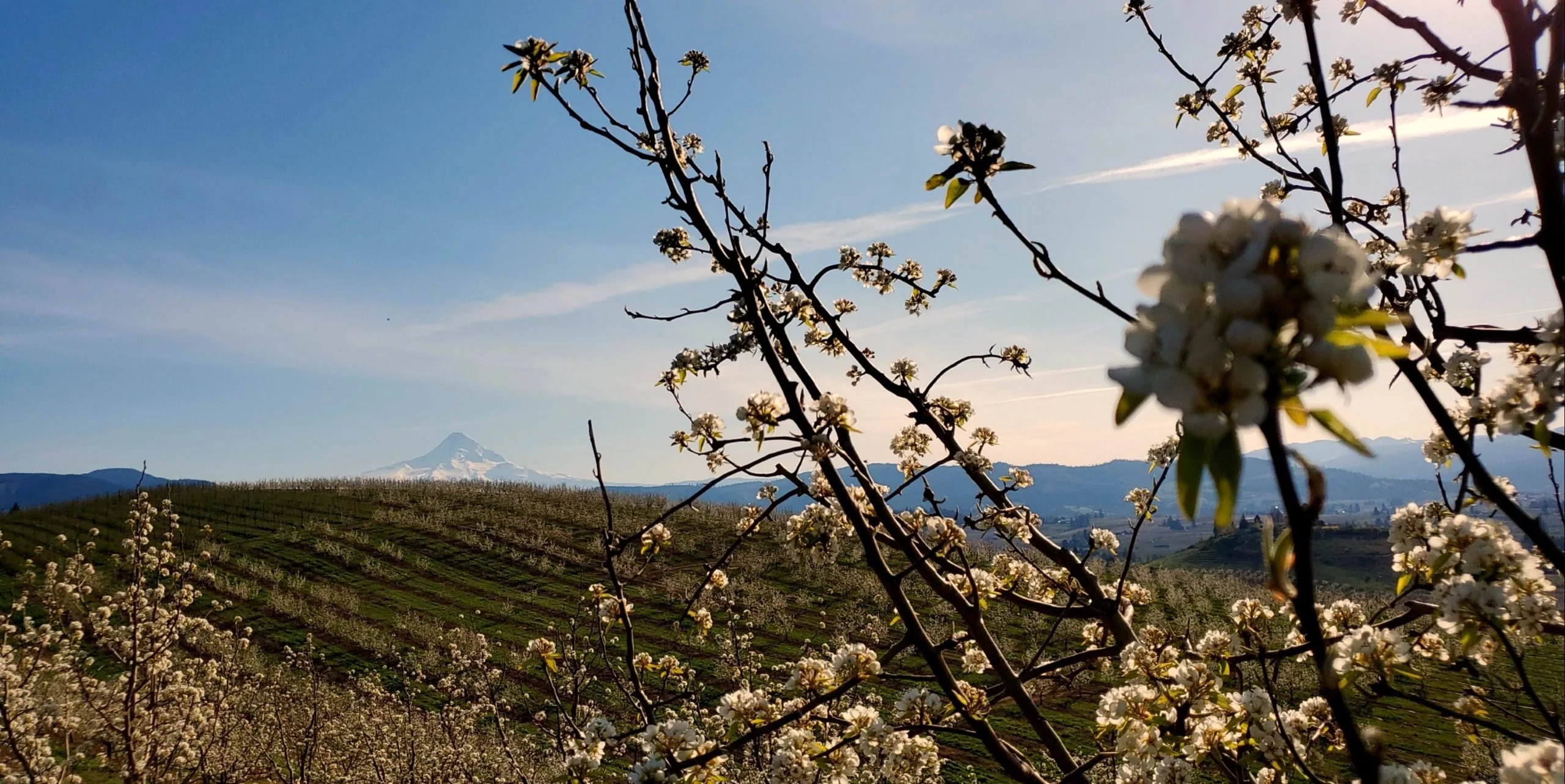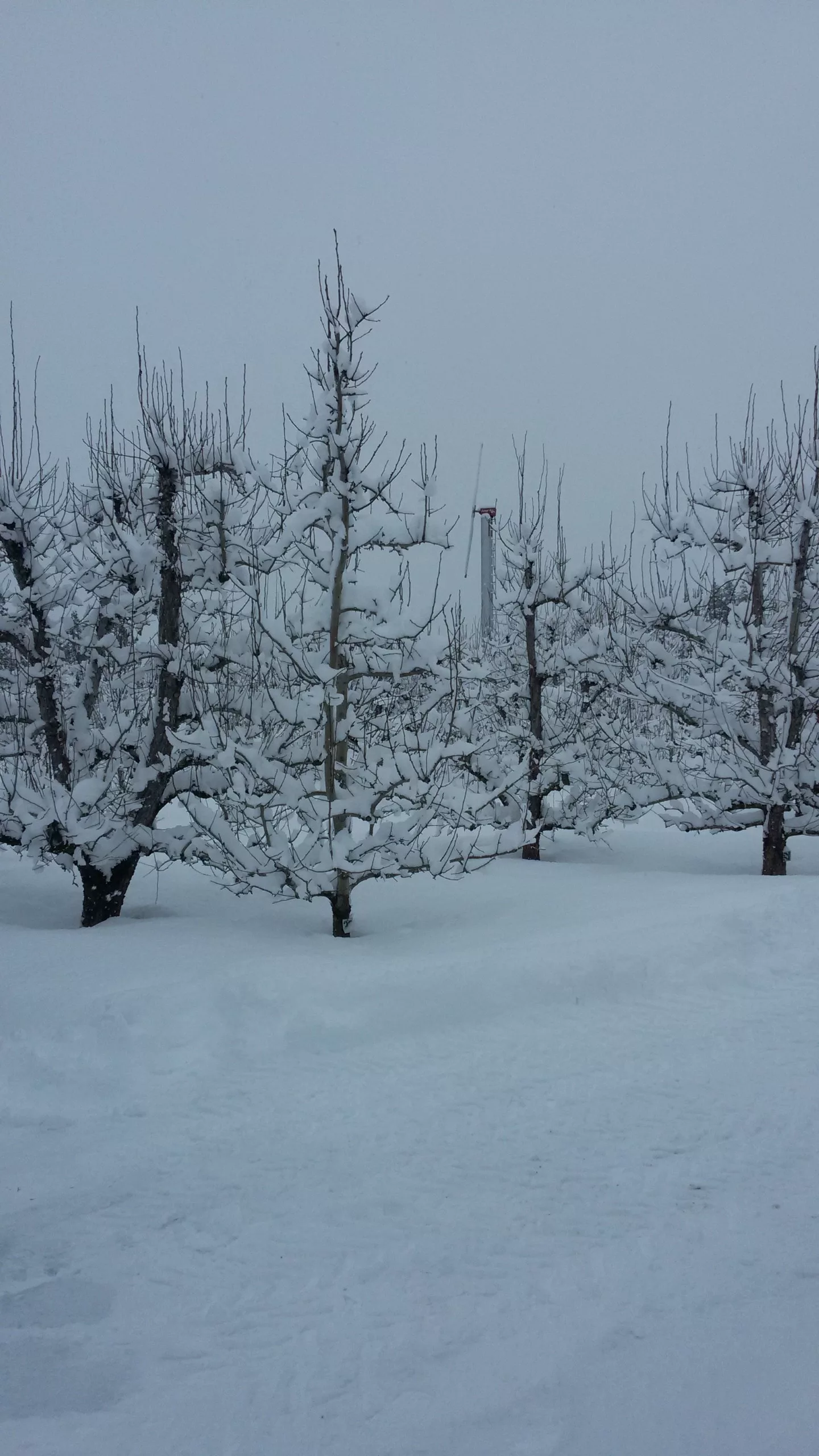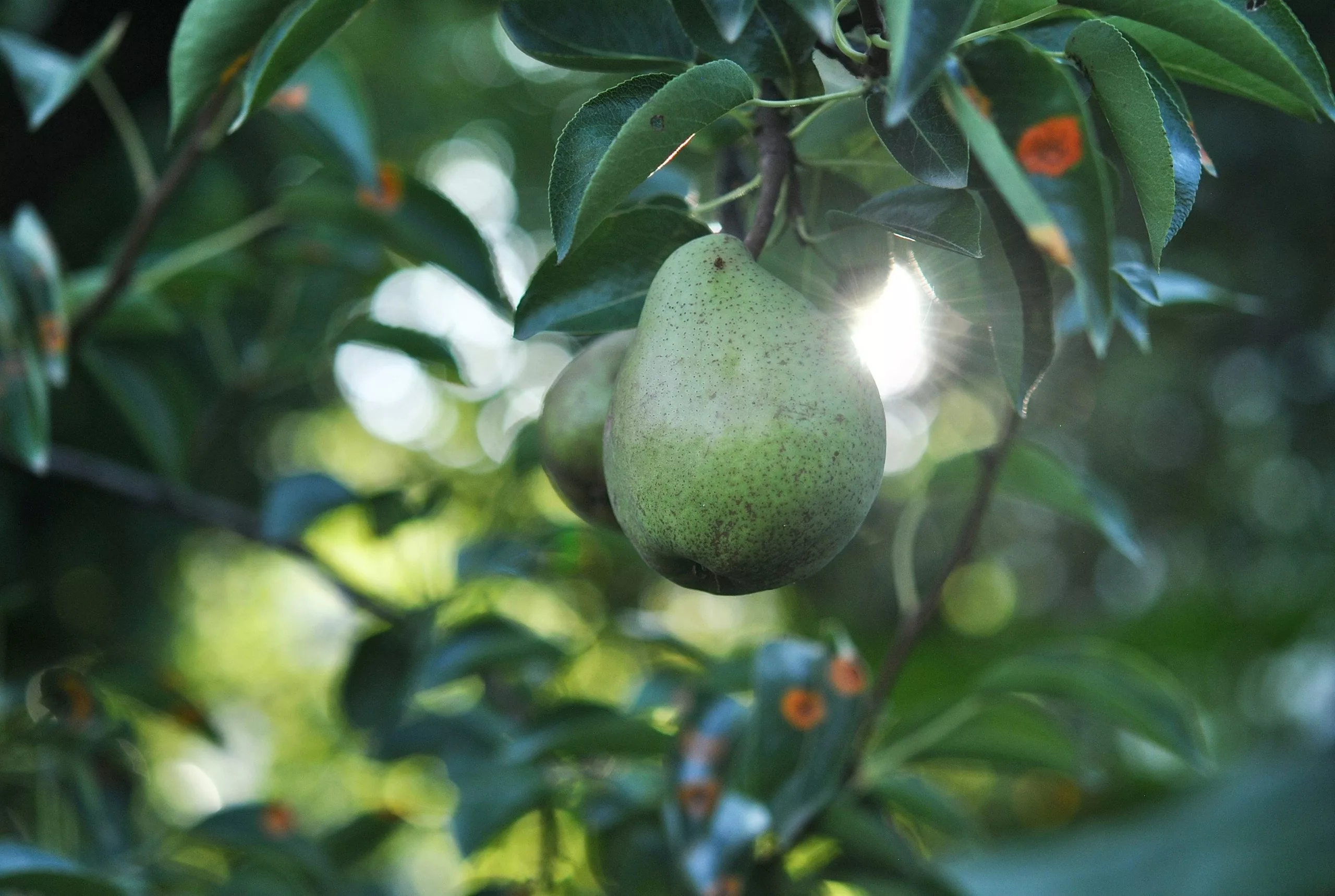In 1876, E.L. Smith planted the first commercial orchard: 30 acres of apples and peaches. Apples became the primary crop in the area, but in 1919 a disastrous freeze killed many of the apple trees in the valley. Growers began planting pear trees rather than replanting apples, and pears eventually became the dominant crop.
While Hood River is known for growing high-quality pears, cherries have been grown in Wasco County since it was first settled. Frank Seufert planted the first commercial cherry orchard in The Dalles in 1886, and the Bing cherry, one of the most recognizable and successful varieties, was developed by Seth Lewelling, who established Oregon’s first plant nursery.





